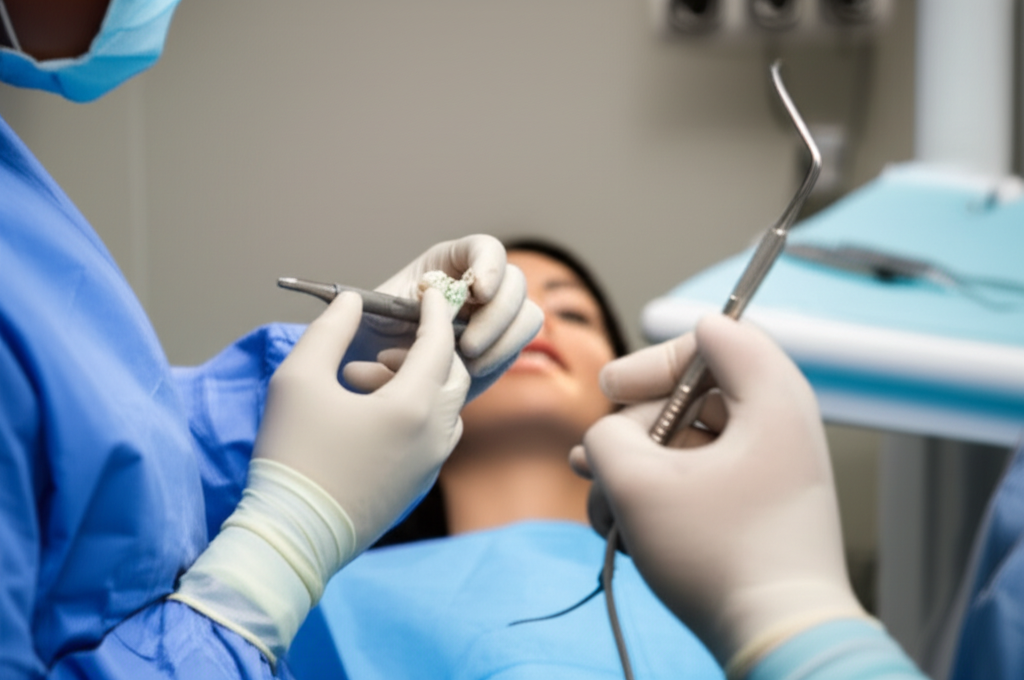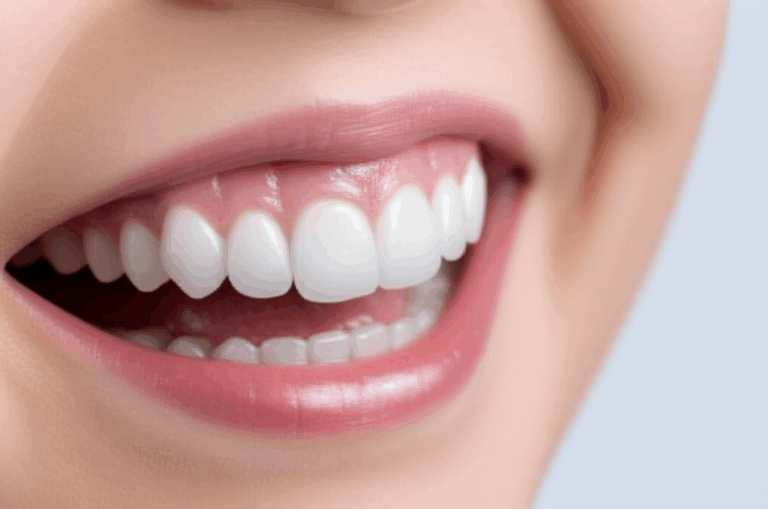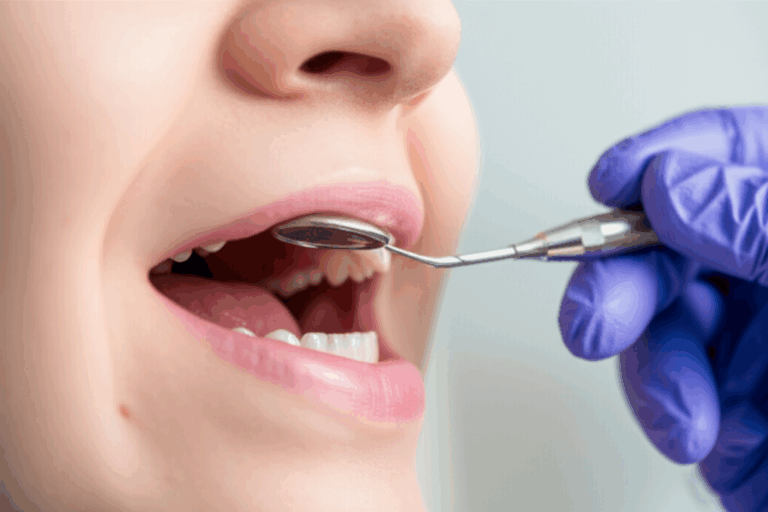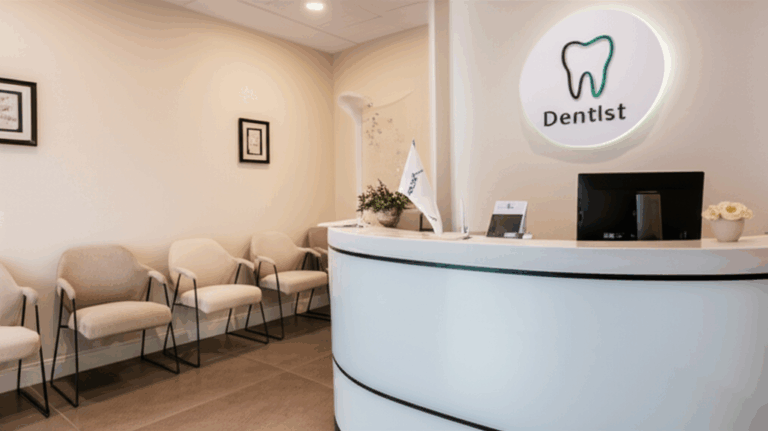
Are Same Day Dental Implants Safe? A Friendly, Clear Guide to Same Day Implant Safety
That question—Are same day dental implants safe?—might be on your mind if you dream of walking into a dental office with missing teeth and leaving the same day with a new smile. The idea is very tempting, but is it too good to be true? If you’re worried about how safe, trustworthy, or real these fast implants are, you’re not alone.
So, let’s get to it: Yes, same day dental implants can be safe and work well—if they’re done for the right person and by a dentist who knows what they’re doing. But just like any big health decision, there are some things to think about before you go ahead.
This guide is for you. If you’re worried about the risks, reading up on your choices, or just want easy answers, you’re in the right place.
In This Article
- What Are Same Day Dental Implants Really?
- Are Immediate Implants Safe?
- Risks: What Can Go Wrong?
- Am I a Good Fit for Same Day Implants?
- How Does the Same Day Implant Process Work?
- Same Day vs. Traditional Implants (Safety Head-to-Head)
- Good Questions to Ask Before Deciding
- Takeaway: What to Remember About Safety
What Are Same Day Dental Implants Really?
Picture this: you sit in the dental chair, maybe have a bad tooth pulled, and walk out a few hours later with an implant and a temporary tooth on top. No months of waiting for the final tooth.
That’s what same day dental implants (also called immediate load implants or “Teeth-in-a-Day”) are all about. Your dentist puts a dental implant (a replacement “root” made of titanium or zirconia) in your jaw, then puts a temporary tooth on right after.
How is this different from the usual dental implants?
- Traditional implants are placed in your mouth and then covered up under the gums for a few months to heal and bond with your bone. Only after that do you get your new tooth.
- Same day implants skip the wait. As long as you have enough healthy bone and a snug fit, you get a “test drive” tooth right away—even though it’s just a temporary tooth at first.
Words You Might See
- Primary stability: How tight the implant feels in your jaw bone after being placed.
- Osseointegration: The bone growing onto and holding the implant in place.
- Implant-supported bridge/denture: Artificial teeth held up by a few implants—used for things like All-on-4 or Teeth-in-a-Day.
Are Immediate Implants Safe?
You probably wonder, “Quick results sound nice, but are they as safe?” Here’s what the data and real experiences say.
The Good News
Both types of implants—done right—have some of the best long-term success rates in dentistry. Think 90–98% for both (when dentists follow all the right steps).
What Makes Same Day Dental Implants Safe?
Safety comes down to:
1. Careful Patient Screening
Not everyone should get these, and that keeps things safer. Dentists check for:
- Good overall health: Ongoing health problems (like out-of-control diabetes) mean higher risk.
- Enough bone: There has to be strong, healthy bone to hold the implant tightly.
- Healthy gums: Any gum infections need to be fixed first.
- Life habits: Smoking and heavy teeth grinding are warning signs.
2. Dentist’s Skill and Experience
Immediate implants need a steady, experienced dentist. Look for someone trained in implants. Their practice lowers your risk and boosts the odds your implant will last.
3. Better Tech Helps
- 3D X-rays (CBCT scans): To check for nerves, bone strength, and choose the best implant spot.
- Digital tools: Help the dentist plan and put the implant in as accurately as possible.
4. Good Materials
Strong, safe materials (titanium or zirconia) help your body accept the implant and help it stay in place.
5. Good Aftercare
Even a perfect implant job needs you to follow all the rules. You must eat soft foods, clean your mouth carefully, and return for check-ups.
6. Traditional Implants vs. Same Day Implants
Studies show the success is 90–98% if everything above is done right. The chances of early failure are just slightly higher (about 1–2%) than with regular implants, often because one of the safety steps above wasn’t followed.
The Numbers side by side
| Safety Feature | Same Day Implants | Traditional Implants |
|---|---|---|
| Success Rate | 90–98% | 95–99% |
| Early Failure (within 1 year) | 2–5% | 1–3% |
| 5–10 Year Survival | 88–94% | 93–97% |
(Source: Studies from the American Dental Association, Academy of Osseointegration, and published dental reviews.)
Risks: What Can Go Wrong?
Let’s be honest—all surgery has some risks, and implants are no different. Same day implants really need every safety measure in place. Here’s what could happen:
1. Implant Doesn’t Fuse to Bone
Think of your implant like a tent stake. If the ground is too loose or you try to use the stake before it’s set in place, it may not stick. With same day implants, chewing too soon or wiggling the implant can keep the bone from growing around it. If this happens, the implant has to come out.
2. Infection
Whether done slow or fast, infection is always a risk. But using clean tools, good dentist skills, and sometimes medicine can cut this risk way down.
3. Peri-implantitis
This word simply means swelling and infection around the implant. It’s like gum disease, but with an implant. Good cleaning at the dentist and at home are really important.
4. Nerve Problems
Not common, but can happen—mainly when putting implants in your lower jaw near nerves. 3D X-rays help avoid this problem.
5. Implant Gets Loose or Breaks
If you eat hard or sticky food, or if your bite is off, the implant or temporary tooth may loosen or (rarely) break. That’s why the soft food rule really matters early on.
6. How It Looks
Picking the right temporary tooth and shaping the gums nicely helps it look natural.
7. Early Trouble Signs
Watch for:
- Pain that gets worse, not better
- Swelling, red gums, or pus
- Wobbly or loose tooth/implant
- Numb lips, chin, or tongue
If any of these show up, call your dentist right away!
Am I a Good Fit for Same Day Implants?
Here’s the truth: not everybody can get same day dental implants. Picking the right people makes everything safer and more likely to work. Let’s see if you might be a fit.
You’re a Good Fit If:
- Pretty healthy overall: No out-of-control health problems.
- Have enough jawbone: Dentist checks with 3D scans.
- Gums are healthy: No untreated gum disease or infections.
- Don’t smoke, or ready to quit (smoking lowers your odds of success).
- No serious grinding/clenching of your teeth.
- Willing to follow your dentist’s rules for food, cleaning, and check-ups.
You Might Not Be a Fit If:
- Too little bone in your jaw.
- Untreated infection or gum disease.
- Certain medicines (like some strong bone drugs).
- Health problems like badly managed diabetes.
- Not likely to come to follow-up visits or follow aftercare rules.
- Strong habits like heavy grinding.
Dentists aren’t just being picky—they want you to be safe and your implant to last.
How Does the Same Day Implant Process Work?
Wondering what actually happens during this process? Here’s how it goes:
1. Talking and Planning
- Health check: Your dentist looks at your health and teeth, talks about your health history.
- 3D X-rays: Take special pictures of your teeth and jaw.
- Planning: Dentist uses the computer to figure out the best spot for the implant.
- Talk about options: You get to ask all your questions and see what things might look like.
2. Day of the Surgery
- Get numb or sedated: To keep you comfy.
- Pull bad teeth (if needed): Done gently to keep your bone safe.
- Place the implant: Dentist puts the implant into the jawbone and makes sure it’s nice and tight.
- Put on the temporary tooth: So you can smile that same day, but remember, it’s not the final one yet.
- Check your bite: Make small changes so you don’t bite too hard on the new tooth.
3. Healing and Home Care
- Eat soft foods: For a few months, avoid biting hard stuff.
- Clean gently: Brush easy, use mouthwash, keep the area clean.
- Follow-ups: Dentist checks how things are going (about a week, a month, and then after a few months).
4. Getting the Permanent Tooth
- After 3–6 months: When the bone has locked the implant in place, the dentist takes off the temporary tooth and puts on your real one.
- For bridges or full sets: Same idea, just more teeth at once.
Dentists may also use special labs, like a dental ceramics lab or a digital dental lab, to get perfect matches for your teeth.
Same Day vs. Traditional Implants (Safety Head-to-Head)
You compare cars before you buy—let’s compare these implants by safety, healing, and success.
Main Differences
| Feature | Same Day (Immediate) | Traditional (Delayed) |
|---|---|---|
| Visits Needed | 1–2 | 2–4+ |
| Time to New Tooth | Same day (temp), 3–6 months (real one) | 3–6 months (real one only) |
| Food After Surgery | Must stick to soft | Also soft, but sometimes not as long |
| Early Failure Chance | A bit higher (2–5%) if steps are missed | Lower (1–3%) due to careful healing |
The Big Idea
- Safety: Both are safe if the patient and dentist are a good match. Same day just needs more careful choosing.
- Convenience: You get a tooth right away—no gaps.
- Lasting Results: Done right, both kinds last a long time (many years, sometimes decades).
- Cost: Same day might cost a bit more because of special planning, technology, and temporary teeth, but you save time.
Why Pick Same Day?
- Want to fill a front tooth gap that day.
- Can’t take lots of days off or travel for treatment.
- Want to avoid walking around with no tooth or using a fake, removable one.
Dentists may use high-tech labs like a crown and bridge lab for the best results.
Good Questions to Ask Before Deciding
Knowledge is power! Here’s what to ask at your dental visit:
These questions help you find a skilled, trustworthy dentist.
Takeaway: What to Remember About Safety
Want the short answer? Here it is:
Same day dental implants are safe for the right people—when done carefully by a well-trained dentist using good technology and with good aftercare.
Quick Recap
- Safety is first: Careful planning and dentist skill are a must.
- Risks do exist: Same day implants mean a bit more work in picking the right person and in the care after. Early failure rates are a bit higher, but still low.
- Long-lasting: If you follow the rules, both types can last many, many years.
- You matter: Your habits in healing, cleaning, and follow-ups make a big difference.
What To Do Now
- Talk to a dentist who specializes in implants.
- Ask lots of questions—share your health and dental history.
- Take your time. Rushing isn’t worth it!
- Keep every check-up and follow your dentist’s advice.
- Remember, a healthy smile is a long-term goal.
Still curious? You can learn more in our full guide on dental implants, including your options, cost, and what’s next.
Still thinking? Remember—clear info brings confidence. Take your time to understand, then decide what’s best for your health and your smile.
Ready for your next step? Talk with a good dentist about what’s right for you. With the right info and team, you can smile confidently for years.
Your questions matter, and your safety always comes first.
Sources:
- American Dental Association (ADA)
- Academy of Osseointegration
- Published peer-reviewed dental research
Learn more about modern dental materials and labs in our digital dental labs guide.








